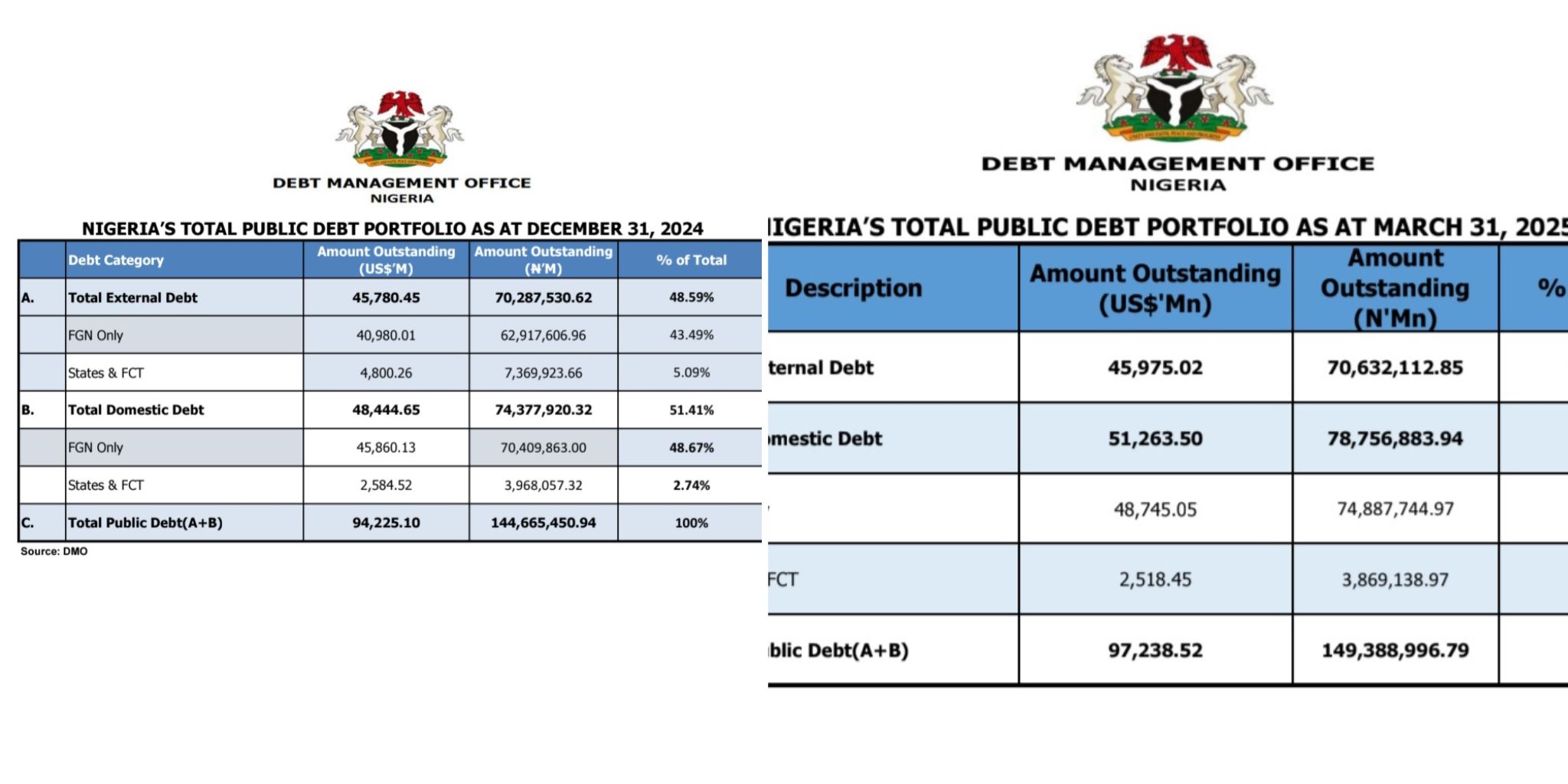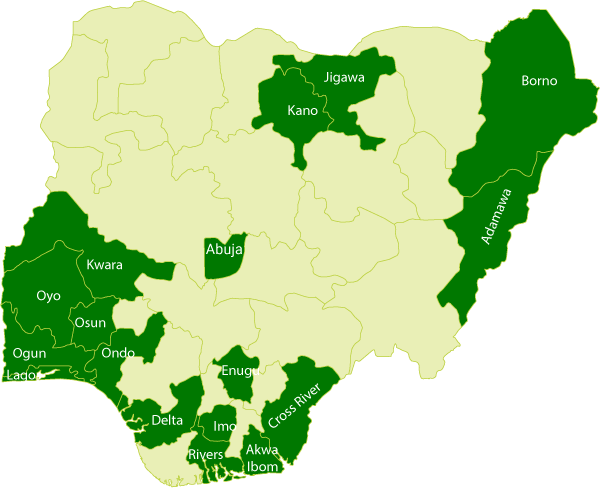New figures from the Central Bank of Nigeria (CBN) reveal that state and local governments in the country collectively owed N4.09 trillion to banks and the apex bank as of December 2024.
This represents a slight decrease of N112 billion (2.7%) compared to the N4.20 trillion debt recorded at the end of 2023 signaling modest progress in subnational debt reduction.
According to the CBN’s latest quarterly bulletin, commercial and merchant banks were responsible for N2.41 trillion of these loans (roughly 59%), a drop from N2.64 trillion a year earlier. However, state and local governments increased their direct borrowing from the CBN, rising from N1.56 trillion in 2023 to N1.68 trillion in 2024.
For the first time, data also showed a modest exposure of N3.77 billion from non-interest banks, while mortgage and microfinance banks recorded no debts from subnational entities.
The debt trend in 2024 fluctuated, beginning with a spike in January at N4.29 trillion , a 20% jump from the previous year. This was followed by modest drops in February and March, and a sharp decline in April to N3.52 trillion, the lowest monthly figure of the year. A strong rebound followed in May, with totals reaching N4.04 trillion and peaking again at N4.29 trillion in June.
From July to December, debt levels remained above N4 trillion. Year-on-year comparisons showed consistent growth, especially in June 2024, which saw a significant N1.01 trillion increase (30.65%) over the same month in 2023.
Analysts have expressed growing concern over the implications of this borrowing trend.
*Experts Sound the Alarm*
Teslim Shitta-Bey, Chief Economist at Proshare Nigeria, warned that the sustained debt load could seriously affect the financial stability of states and LGs in the near future.
“Most subnational governments are struggling with balance sheet mismanagement,” Shitta-Bey said. “Borrowing might provide temporary relief, but it’s not a sustainable solution.”
He recommended that governments explore more strategic, long-term financing models including equity-like instruments and emphasized the need for a comprehensive national asset register to raise capital, citing the underutilization of infrastructure like the National Stadium.
Shitta-Bey also criticized the underuse of revenue bonds, which are tied to income-generating projects, unlike general obligation bonds that rely on public funds.
Meanwhile, economist Adewale Abimbola attributed the fragile state of Nigeria’s subnational economies to a lack of economic independence and overreliance on federal allocations.
“Most states are not economically viable,” Abimbola said. “They need to discover and build on their unique competitive strengths and create an environment that attracts both local and foreign investors.”
He added that despite knowing the right strategies, many governors lack the political will to implement necessary reforms a situation he believes has worsened in 2025, as politicians gear up for the 2027 elections.
Macroeconomic analyst Dayo Adenubi emphasized boosting internally generated revenue (IGR) as a key priority, especially by improving tax collection and consumption, which would enhance VAT revenue.
He also stressed that states should strengthen compliance by fulfilling their end of the social contract, delivering public services and building trust. Creating business-friendly policies, he added, would spur job creation, encourage corporate growth, and increase PAYE tax inflows.





